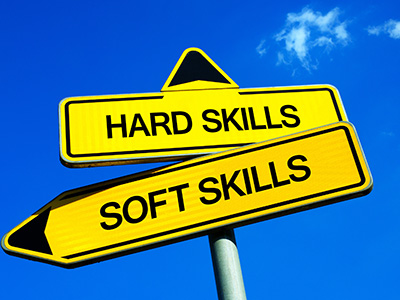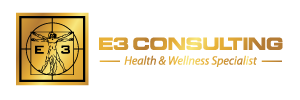Hard skills vs. soft skills

Hard skills vs. soft skills
We all have different skill sets both in our personal and professional lives. Some people are good at creating big ideas and some are good at the small details. In most cases, both hard and soft skills are necessary to getting the job done.
In the working world, skills are often divided into soft skills and hard skills. Now, what constitutes a hard skill or soft skill? It’s not a literal definition, but rather a conceptual distinction between abilities and qualifications of what a person can do and perform.
Any human resources professional will tell you that an ideal candidate has a variety of both hard and soft skills allowing them to contribute at any part of the organization. Depending on what skills someone leads with and excels at using professionally is likely where they end up within a role, department, or industry. So, what’s the difference between soft skills and hard skills?
Hard skills
Hard skills are defined as the necessary and practical skills needed to perform a job as it is written in the job description. If a person does not have the necessary hard skills for a particular role, they will likely not be considered for the job. This might not be the case with entry-level jobs where managers are giving people chances to examine what their skills are before deciding where they belong in the overall operation.
However, most of us have unique hard skills walking into any situation. Some examples of hard skills:
- Computer skills
- Physical capabilities
- Academic knowledge
- Writing and editing
- Software experience
- Use of math and numbers beyond basic
- Teaching and training
- Marketing and advertising
- Data mining and analytics
- Service work
Hard skills are learned through work and life experience, often through schooling or training. These types of skills usually need to be refreshed and updated as advancements in the field become more readily available. However, to only have hard skills and no soft skills is more robotic than humanlike which is where soft skills come into play to round out a person.
Soft skills
Soft skills are defined as general characteristics and personality traits of an individual. Some of these are ingrained in a person from birth and some are learned over time. We all have soft skills that can help or hurt us depending on if we’re in a role that fits. Some examples of soft skills:
- Organization
- Punctuality
- Learnability
- Flexibility
- Open-mindedness
- Responsibility and accountability
- Communication
- Integrity
- Vulnerability
- Critical thinking
- Adaptability
These sound like more general life skills but they very much come into play in the workplace. If you have someone who is a genius at coding but is unwilling to compromise as business changes, that person will not be an effective team member. When hiring for a role it’s important to see the hard skills on a resume then interview or test someone to learn their soft skills. Soft skills often come out over time and can be learned or adjusted. But, some people are organized and some people are not – it’s just a fact of life.
It’s important for people to understand what their hard and soft skills are in order to speak to why they are an ideal candidate for a role. The more self-aware a person is about the skills they have and can give examples to those, the more likely they are to be hired.
If you want to better understand your employees – E3 Consulting is here to help
It’s hard to understand every employee and what makes them tick alongside what skills they have. Through employee engagement programs and other E3 Consulting services, we can help hoan in on employee hard and soft skills.

